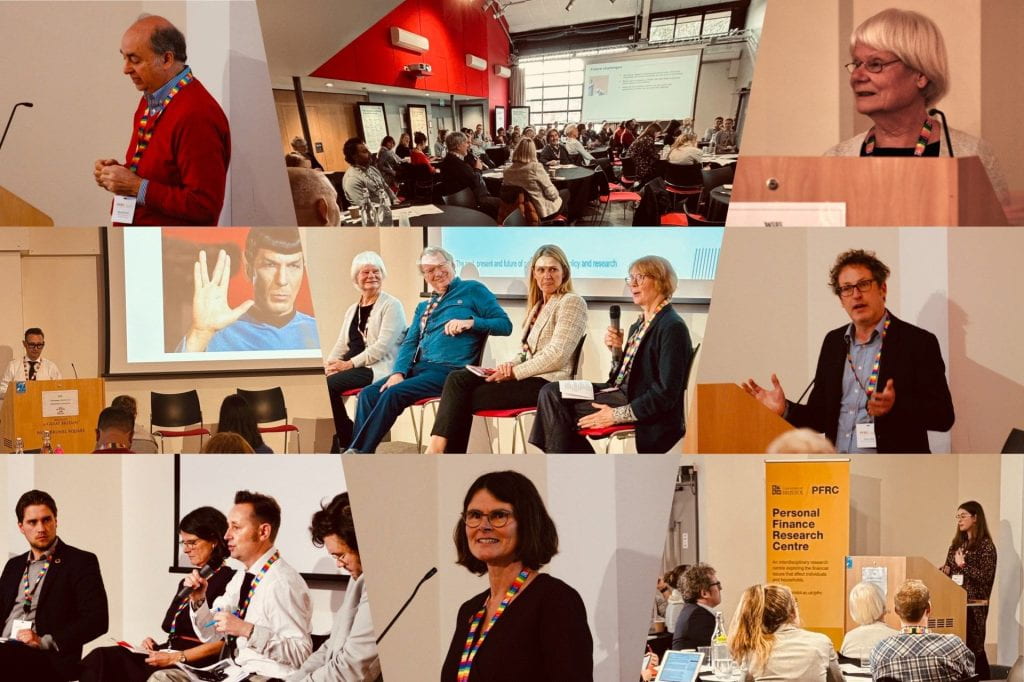By Katie Cross and Sara Davies
As students return to University campuses, the discussion has largely focused on worries over increased COVID-19 rates. But our survey of University of Bristol students suggests their approaching financial position should also be cause for concern.
The economic impact of COVID-19 has been both rapid and widespread. By June, the economy was around 17% smaller than it had been in February. The sharp increase in Universal Credit claims after lockdown was unprecedented, with almost 2.5 million household claiming between mid-March and late June. And the Office for Budget Responsibility is projecting an unemployment rate of 11.9 per cent in Q4 of 2020. It is a very uncertain time for all.
But one group whose financial position we have heard less about during this time is that of university students. Each year we conduct a survey for the University of Bristol’s Widening Participation team to look at the impact bursaries have on students, comparing the financial experiences of those from low- and middle-income backgrounds who receive financial support from the University, with those from higher-income backgrounds[1], who do not. This year the timing of the survey allowed us to ask students about their financial experiences both pre- and post-COVID, and to look at how they may have fared during the crisis.
Financial impacts so far
As with the wider UK population, COVID-19 and the subsequent lockdown has had an unparalleled impact on student employment. Prior to the pandemic half of students surveyed (51 per cent) were employed in some form. Since the outbreak however, over two thirds of those previously working were no longer doing so, with a further 12 per cent working fewer hours than before. Of those no longer working, two thirds said this was due to their employer being closed (either temporarily or permanently). Although the majority of students receiving some form of maintenance loan, earned income is still important to students in order to manage financially, particularly among those who are not in receipt of a bursary, where this loss of income could be worryingly detrimental.
“My maintenance loan does not even cover my rent which means I have to borrow money from family and work in order to cover my rent and food.” – Year two, unfunded
Overall, the impact of coronavirus on the students we spoke to had been fairly evenly split across those finding it easier to manage financially (30 per cent), much the same (40 per cent) and harder to manage (30 per cent).
This means that, for the majority of students, COVID-19 had not had any major negative impact on their financial situation. Indeed, nearly half said they had been able to save money as their costs had generally reduced – a finding which is perhaps unsurprising as lockdown prevented social spending. A third also reported not having to pay for their final term of accommodation, representing a further considerable saving. This does, however, still leave 65 per cent of students paying for at least part, if not all, of their accommodation for the summer term, despite no physical teaching and (for the majority) returning home. Unsurprisingly the majority (95 per cent) of those who weren’t required to pay for their final term of accommodation were first year students (typically living in University owned halls), as opposed to second and third year students who were more likely to rent privately.
“No change at all despite the fact that our bills are included in rent so we are paying more for water, electricity etc that none of us are using (no one living there at the moment). When we contacted to ask for some reduction in rent, we were told that the property is the landlord’s primary source of income (seems an irrelevant argument) so we wouldn’t get any reduction.” – Year two, funded
Overall, 3 in 10 reported their costs and outgoings being harder to manage due to the outbreak. This rises to over half for mature students (who were more likely to have financial dependents) and around two-fifths for those who had lost income from employment.
Support from family
Many students rely on financial support from their families and friends to manage. Indeed, eligibility for bursaries and maintenance loans is based on parental household income from the previous tax year, and there is an expectation that those from higher-income households will receive support from their family. Almost two thirds of Bristol students who were ineligible for bursaries relied on support from family and friends, with 19 per cent having their accommodation paid for and 57 per cent receiving a set amount of money each week or month. Since the outbreak, a small number of (mainly non-bursary) students had received additional support from family or friends. Mature students were also more likely than younger students to have turned to family and friends for financial support since the lockdown, whereas beforehand they were significantly less likely to have done so.
However, the ongoing impact of COVID-19 – particularly once the furlough scheme comes to an end – may have dramatic impacts on family household income, and the worry is that students may fall through a gap, without university funding or family support.
“[I have] concern over lack of employment for my parents, who I rely on financially to pay for my living and accommodation in Bristol, as my maintenance loan was significantly lower than my accommodation cost.” – Year one, unfunded
Prospects
While almost a third of students were currently finding it harder to manage financially, even more were worried about the coming academic year. Half were concerned over their lack of paid employment/income during the holidays or coming year and 41 per cent were worried about how they would manage financially in the Autumn term. Those who usually rely on paid work may run into financial difficulties, particularly if they are unable to return to work or find alternative employment. In our survey, over a third who worked considered employment income ‘very important’ to financially continuing at the University.
It is also important to consider the longer-term financial impact and job prospects for students. The unemployment rate is expected to rise to almost 12 per cent by the end of the year, and those who have recently left education are likely to be disproportionately affected. We are already seeing a reduction in job vacancies and in our survey 69 per cent reported being generally worried about their future, with nearly four in ten third-year students concerned over their post-graduate prospects since COVID-19.
“Now is literally the worst time in decades to be entering the work force.” – Year three, funded
Given the general worry about the future, concern over personal and familial health, uncertainty around teaching in the coming year and reduced socialising with friends, it is unsurprising that some students also commented on the negative impacts on their mental health.
“Due to some of my family members being high at risk to corona, I am increasingly anxious as to what is going to happen to them. My mental health has suffered a lot from being very isolated over the Easter term. I am worried that the global economy is about to collapse and the whole world is going to go into recession. So all in all, quite a lot to be stressed about.” – Year one, funded
“My depression has got much worse, my father is at risk, I am struggling to focus at all so I am behind in all of my work and I don’t know how I will cope financially if I cannot work in the summer” – Year two, funded
Overall, the student community has faced an unprecedented situation with remarkable resilience, but it is apparent that the challenges brought by COVID-19 will impact students for a long time to come. It is crucial that universities understand that, for some students at least, it will be much harder to manage financially than in previous years, and institutions therefore need to provide an appropriate level of practical and pastoral support to help them.
Firstly, we need greater recognition of how important earned income is to students’ financial position and participation at university. Secondly, the increased likelihood of financial difficulty among families of students should be considered, and the impact of this on students – both financially and emotionally – given the role that family support plays in getting by while at university. This suggests that there will be a need for a well-funded and accessible hardship fund in the coming years, because increased financial difficulties may well effect likelihood of withdrawal from studies.
Some students will need more help than others; previous surveys have found that bursaries appear to have some protective effect, therefore attention should also be given to those from higher-income households, particularly those just outside of eligibility, as they are more likely to rely on income from employment. Mature students, who we have previously found struggle financially more than their younger peers, are already turning to their families for support in greater numbers, but what about those who do not have people to turn to?
Finally, the ongoing emotional toil of dealing with a global crisis should not be underestimated. It is worrying enough leaving university in normal times, let alone doing so during a time of recession and increasing unemployment. Giving students as much support and guidance as possible, both to manage during their studies, and to help them to prosper as they leave, is going to be vital over the next few years.
[1] Low income = Residual Household Income (RHI) > £25k; Mid income = RHI £25-44k; Higher income =RHI £43-80k





